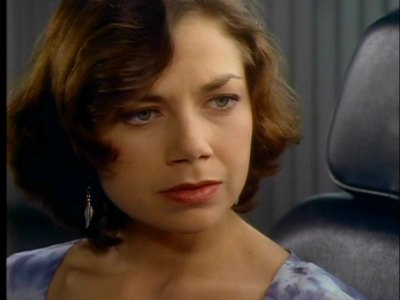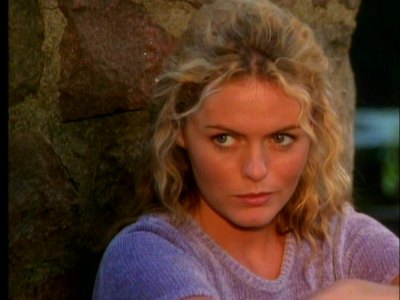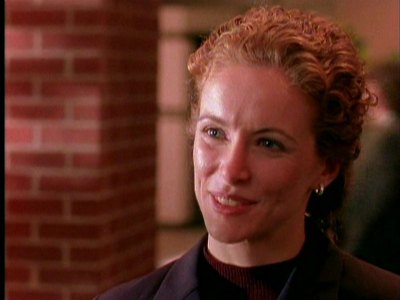| Reviews & Columns |
|
Reviews DVD TV on DVD Blu-ray 4K UHD International DVDs In Theaters Reviews by Studio Video Games Features Collector Series DVDs Easter Egg Database Interviews DVD Talk Radio Feature Articles Columns Anime Talk DVD Savant Horror DVDs The M.O.D. Squad Art House HD Talk Silent DVD
|
DVD Talk Forum |
|
|
| Resources |
|
DVD Price Search Customer Service #'s RCE Info Links |
|
Columns
|
|
|
Harlequin Valentine's Day Triple Feature, Vol. 1 (Another Woman, At the Midnight Hour, This Matter of Marriage)
Just in time for Valentine's Day, Lionsgate has released three Alliance Atlantis telemovies, brought under the Harlequin Collection banner, entitled Harlequin Valentine's Day Triple Feature, Vol. 1. The films included are 1994's Another Woman, starring Justine Bateman and Peter Outerbridge; 1995's At the Midnight Hour, starring Patsy Kensit and Simon MacCorkindale; and 1998's This Matter of Marriage, starring Leslie Hope and Rick Peters. All of these films have been released before on DVD, and there are no additional extras or bonus features for this collection, so anyone already owning these titles needn't double-dip. Let's look at the individual films.
ANOTHER WOMAN

Lisa Temple (Justine Bateman) lies comatose in a hospital bed, the victim of a vicious assault. Upon awakening, she has no memory of her previous life, and certainly no recollection of her husband Paul's (Peter Outerbridge) efforts to divorce her. Returning to her palatial home with still-leery Paul, Lisa is reintroduced to Bonnie Temple (Amy Stewart), Paul's little sister, who hates Lisa even more than Paul. Eventually, Bonnie reveals to Lisa that something "changed" Lisa a few years ago, totally turning her world upside down, transforming Lisa into a promiscuous, mean-spirited terror. Yet no one (on advice from her psychiatrist, Dr. Holcross, played by Kenneth Welsh) will tell her what, exactly, happened to her. She doesn't have much time, though, to figure out the mystery, because a mysterious man from her past, Dooly (James Purcell) appears to be following her with deadly intent.
Like all the movies contained here in the Harlequin Valentine's Day Triple Feature, Vol. 1 collection, the scripting and direction are unadorned, straight-ahead basic: square set-ups, plenty of head-shot close-ups, and 1-2-3 editing. In other words, they're the perfect visual equivalent of the Harlequin Romance novels they're based on. Subtlety is not a factor here. This is pure melodrama romance, and as such, they're fairly watchable yarns, and no more. At first glance, I thought the director credited, Alan Smythe, was the infamous "Alan Smithee" moniker that embarrassed directors use to take when they wanted to disassociate themselves from a particular project, but a second look at his name squashed that fun little tidbit. As it stands, Another Woman is a serviceable little meller; the majority of it falling squarely within the confines of quickly-shot Canadian telemovie romance genre. Sets are agreeable, and the performances low-key (Bateman's just okay here; frankly, she looks a little down-in-the-mouth, having to star in such an exercise).
Only an obviously tacked-on sex scene (yup) jars the viewer here. Supposedly, Paul is remembering his first date with Lisa on the beach, when a flashback occurs, with different actors, who get, um...naked on the beach. Since the couple supposedly have been married only six years, and Bateman and Outerbridge look pretty youthful to begin with, what were the producers thinking, getting two totally different actors - who look nothing like the leads - to stand in for the couple, supposedly only six years back? I'm not knocking the nudity, but it comes out of left field, and doesn't even make sense; after the "flashback," the original sequence resumes, and Paul states that it took him all night to get up the courage to just kiss her (well, that's not what the flashback shows, Paul!). Either this scene was tacked on post-production for the DVD sale, or it was hurriedly included, perhaps, for the film's sale overseas, where TV movies sometimes play legitimate theaters. Either way, it's a pretty funny, glaring bump in the road.
AT THE MIDNIGHT HOUR

Almost cartoonish in execution (check out the pitiful model that stands in for Richard's mansion), At the Midnight Hour at least benefits from sexy Kensit's frequent wardrobe changes, although her kissing scenes with MacCorkindale (who's a far better actor than what's required here) look positively odd (he appears to be fighting for purchase against the stone-faced Kensit). Still, At the Midnight Hour provides all the substandard, cheap pseudo-Gothic thrills that fans are looking for in this kind of film (stormy nights, complete with lightening flashes when someone reveals a secret, dark, forbidding staircases and mysterious laboratories, sex in the library by the fire). It moves quickly enough, and schizophrenic old pro Charles Jarrott (he could make a film like Anne of a Thousand Days with Richard Burton, and then turn around and make one of the most reviled remakes in movie history, 1973's Lost Horizon) doesn't waste time on a lot of superfluous nonsense like character development or interesting set-ups. All and all, unmemorable, but adequate for zoning out in front of the telly.
THIS MATTER OF MARRIAGE

Architects Hallie Mitchell (Leslie Hope) and Donnalee Crawford (Sherry Miller) are struggling not only with their business (bills are mounting, and assignments are drying up) but with their emotional lives, as well. Donnalee is 38, and worried she's never going to meet someone to give her the family she desperately wants. Hallie, angry and awkward around men, can't seem to understand why she can't connect with anyone she fancies (the angry yelling might be a clue, Hallie). Into Hallie's life comes Steve Marris (Rick Peters), a big, kind, lunk of a next-door-neighbor who's having water problems in their split duplex. Always coming over in a robe (when they shower at the same time, the water goes out), Steve is recently separated and looking to connect with Hallie. But Hallie resists this big lout, and instead pursues a series of misdirected romances, including hooking up with her high school crush, Greg Cavanaugh (Carl Marotte). Can Hallie and Donnalee get it right, both in the bedroom and the boardroom?
Queasily comedic most of the time, This Matter of Marriage isn't very successful at making us care about Hallie and Donnalee, probably because the nicer, more accessible Donnalee is barely seen in the film, and the abrasive, nervous Hallie is front and center. Filled with all sorts of anxious ticks and angry faces, I'm not sure whose idea it was to make Hallie such an unattractive character, but they certainly succeeded. Michael Nouri, way too skilled for this junk, is introduced as a major character, but then just disappears from the scene until the conclusion. The "meet cute" aspect of the film, endlessly retreaded when Hallie and Steve keep running out of water, becomes so grinding that eventually, drowning doesn't seem out of line for the pair of them. Watchable, I suppose, but there's a definite disconnect between tone and intention here.
The DVD:
The Video:
The full frame, 1.33:1 transfers for the films in the Harlequin Valentine's Day Triple Feature, Vol. 1 collection, are not a pretty bunch. This Matter of Marriage probably looks the worst, with substantial edge enhancement, pixilation and compression issues. Video noise and grain is apparent on all of them, along with faded colors. Don't watch these on your big monitors, ladies.
The Audio:
The English mono audio track accurately reflects the original broadcast presentations. No subtitles or close-captions are available.
The Extras:
There are zero extras on the Harlequin Valentine's Day Triple Feature, Vol. 1 collection.
Final Thoughts:
Fans of these Harlequin Romance-inspired telemovies will probably appreciate the three film collection, Harlequin Valentine's Day Triple Feature, Vol. 1, and the price is cheap enough where it won't hurt too much if you wind up not liking them. If you already own these titles on DVD, don't double-dip; there are no new extras. Fans could buy, but the curious uninitiated should rent first.
Paul Mavis is an internationally published film and television historian, a member of the Online Film Critics Society, and the author of The Espionage Filmography.


|
| Popular Reviews |
| Sponsored Links |
|
|
| Sponsored Links |
|
|
| Release List | Reviews | Shop | Newsletter | Forum | DVD Giveaways | Blu-Ray | Advertise |
|
Copyright 2024 DVDTalk.com All Rights Reserved. Legal Info, Privacy Policy, Terms of Use,
Manage Preferences,
Your Privacy Choices | |||||||













